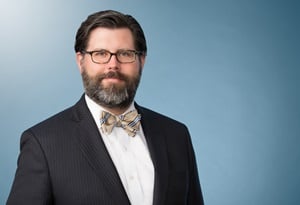Supreme Court Decides Perez v. Sturgis Public Schools
On March 21, 2023, the Supreme Court decided Perez v. Sturgis Public Schools, No. 21-887, holding that the Individuals with Disabilities Education Act’s (IDEA) exhaustion requirement, 20 U.S.C. § 1415(l), does not preclude an Americans with Disabilities Act (ADA) lawsuit where the relief sought (i.e., compensatory damages) is not something IDEA can provide.
Miguel Luna Perez, who is deaf, filed an administrative complaint with the Michigan Department of Education alleging (among other things) that Michigan’s Sturgis Public School District, where he attended schools from ages 9 through 20, failed to provide him a free and appropriate public education as required by IDEA, 20 U.S.C. § 1415. The parties reached a settlement in which Sturgis promised to provide the forward-looking relief Perez sought. Perez then sued in federal district court under the ADA seeking compensatory damages. The District Court dismissed the suit, finding that 20 U.S.C. § 1415(l) barred Perez from bringing his ADA claim because it requires a plaintiff “seeking relief that is also available under” IDEA to first exhaust IDEA’s administrative procedures. Bound by circuit precedent already addressing the question, the Sixth Circuit affirmed. Because the courts of appeals have disagreed about how best to read the statute, the Supreme Court granted review.
In a unanimous decision, the Supreme Court reversed and held that § 1415(l) does not preclude Perez’s ADA lawsuit because the relief he seeks (i.e., compensatory damages) is not something IDEA can provide. Although § 1415(l) bars individuals from “seeking relief” under other federal laws unless they first exhaust “the procedures under subsections (f) and (g),” this limitation does not apply to all suits seeking relief that other federal laws provide. Rather, this exhaustion requirement applies only to suits that “see[k] relief . . . also available under” IDEA. That condition is not met where a plaintiff brings a suit under another federal law for compensatory damages — a form of relief IDEA does not provide. This interpretation admittedly treats “remedies” as synonymous with the “relief” a plaintiff “seek[s].” But the Court concluded that this is how an ordinary reader would interpret the provision, based on a number of contextual clues. The Court declined to opine on any of the additional questions posed by the parties, including whether IDEA’s exhaustion requirement is susceptible to a judge-made futility exception and whether the compensatory damages Perez seeks in his ADA suit are in fact available under that statute.
Justice Gorsuch delivered the unanimous opinion of the Court.



